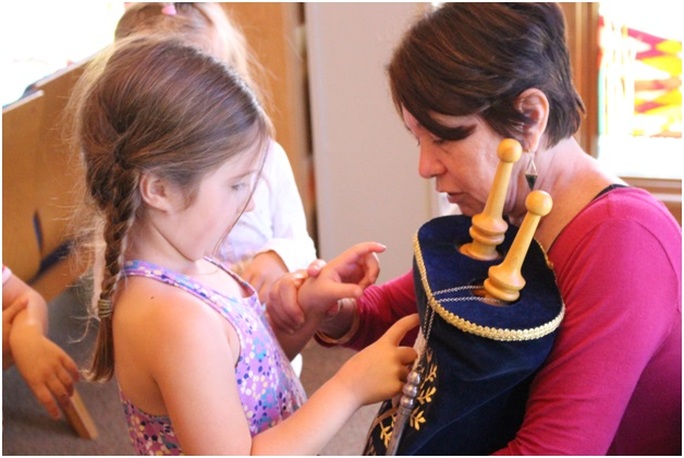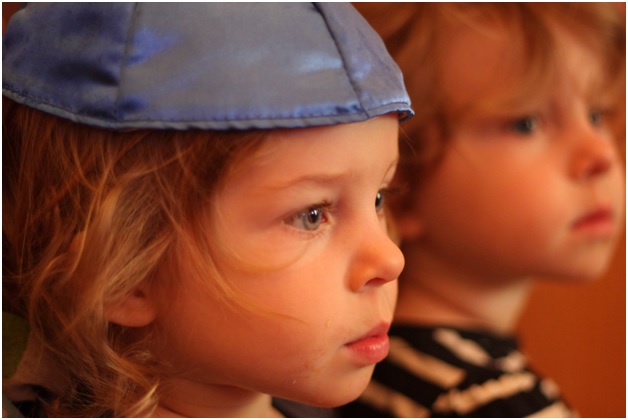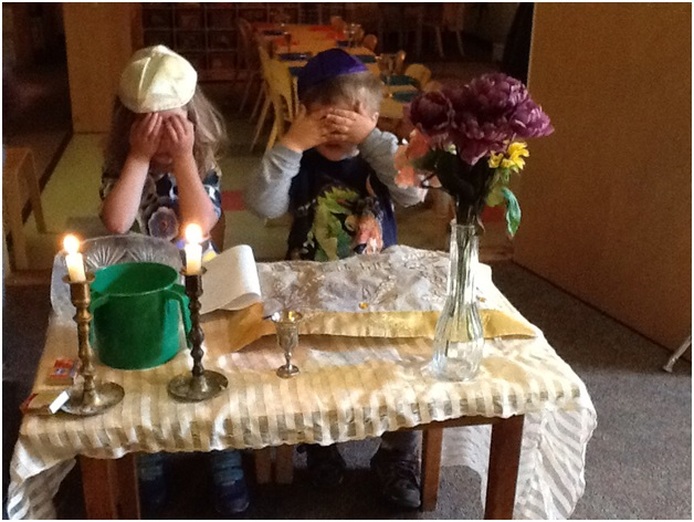 by Veronica Maravankin The following are amended remarks shared with families at the close of the school year. As the end of the school year is upon us, we experience the conclusion (siyum in Hebrew) of a yearlong journey. Simultaneously, in a few weeks, Jewish people all over the world will celebrate the holiday of Shavuot that commemorates the revelation at Mount Sinai and the giving of the Torah to the Jewish people. Back then, the Jewish people were given the “document” that was to guide them in living a Jewish and a righteous life. Despite the hundreds and thousands of years that have gone by since they received the Torah, what was written in the Torah remains actual today, and can be a guide for us throughout our school journeys. In the poem “All I Really Need To Know I Learned In Kindergarten,” skills from the preschool years are listed that serve children throughout their life journey. Play fair, don't hit people, put things back where you found them, clean up your own mess, don't take things that aren't yours, wash your hands before you eat, flush, draw and paint and sing and dance. While these lessons are very important, they are not at the root of the Jewish message we hope to convey. Because of the proximity to the holiday of Shavuot, and the fact that the mission of our schools is to engage families in Jewish journeys, we want to look back and reflect on some of the big ideas and our children can learn in our schools throughout the yearly cycle of the Jewish holidays. On Rosh Hashanah we talk about new beginnings with new opportunities to recreate and rebuild relationships. We think about ways to see life in a new light. We wish and have new goals and dreams for ourselves and for others. On Yom Kippur we reflect and seek repentance and learn to say one of the hardest phrases: I am sorry. On Sukkot we welcome guests. We embrace them and making them feel special. We share the importance of bringing together different qualities and abilities to make a whole. On Simchat Torah we remember the importance of a cycle. We acknowledge that year after year, we read or are exposed to the same topics and concepts, but what we learn is always different. Our understandings are deeper. We are in a different place, therefore our takeaways always are different. On Hanukkah we think about doing, just as the Maccabees did. We highlight bravery, determination, thinking and planning our actions, working together, fixing what is broken, bringing light and happiness to the world, and being thankful to God. On Purim we accentuate living a joyful life, having the capability to find joy in simple moments and the ability to rejoice. We stand up for what we believe, we are brave, and we explore our identity. What is our essence underneath our costumes or masks? What is it about the character we represent, identify with, and strive to be like? On Passover we think about noticing. If Moses not noticed the burning Bush, our story would have been much different. We listen to a calling, we trust in one’s abilities despite our insecurities and uncertainties, we persevere, we have faith and hope in the face of fear, and we remember what it means to be a leader. On Shabbat we take the time to pause, reconnect, and to be together. We celebrate our weekly accomplishments, refuel, and re energize for what is coming. On Havdalah we ensure that the sweetness and gains of Shabbat remain within us. We separate and recognize between the holy, extraordinary and the ordinary, while having the capability to appreciate both. Living Jewishly is about being in community, celebration, family, and togetherness. These blessings are a symbol of appreciation, gratefulness and the ability to find the extraordinary in the ordinary moments. This is what some of us call Seamless Judaism; imagine a world in which citizens live by what the children in our schools have learned throughout the cycle of Jewish holidays, some of the most fundamental universal values, which have seen through a Jewish lens. As we prepare for the siyum or the closing of the school year, we also must remember the vision we hold for children and families. As we model a school of seamless Judaism, we hand children and families a Torah that guides them through all the paths they’ll take from now, continuing l’dor v’dor or from generation to generation. As the Proverb says, “It is a Tree of Life to those who hold fast to it.” Questions for educators to consider:
----- Veronica is the Vice President for Early Childhood Education at the Mandel JCC in Palm Beach Gardens. She is also a founding Partner at the Paradigm Project.
2 Comments
7/26/2021 02:17:24 pm
I like that this post stressed that it is important for us to consider the reputation of any school before we enroll our kids. It makes sense for us to do so as in doing so, we will be certain that we are choosing the right school. I will definitely keep this information in mind for future references.
Reply
Leave a Reply. |
AuthorA collaborative project of Paradigm Shifters. Let us know if you would like to author a thought piece. Archives
August 2016
Categories
All
|



 RSS Feed
RSS Feed